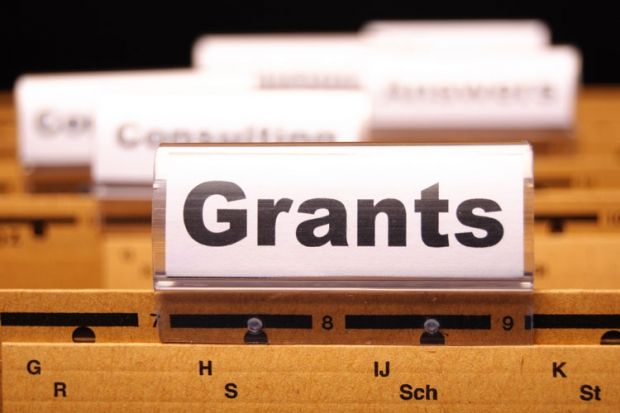Biotechnology and Biological Sciences Research Council
Research grants
- Award winner: Laura Andreae
- Institution: King’s College London
- Value: £330,712
The role of neurotransmitter release in synapse formation
- Award winner: David Carter
- Institution: Oxford Brookes University
- Value: £452,093
Elucidating the mechanisms and pathways of extracellular vesicle uptake and intercellular stress response
- Award winner: Anestis Tsakiridis
- Institution: University of Sheffield
- Value: £417,409
Screening for regulators of human embryonic axis elongation in vitro
- Award winner: Anne Minihane
- Institution: University of East Anglia
- Value: £119,504
HDHL-biomarkers: fatty acid metabolism – interlinking diet with cardiometabolic health (FAME)
Leverhulme Trust
Research project grants
Sciences
- Award winner: Victor Sans Sangorrin
- Institution: University of Nottingham
- Value: £161,448
Advanced molecular materials based on 3D-printed polymeric ionic liquids
- Award winner: Jemma Wadham
- Institution: University of Bristol
- Value: £261,904
Sub-ice weathering: a missing link in the global silicon cycle?
- Award winner: Tim Vogels
- Institution: University of Oxford
- Value: £169,663
The cooperative brain: multipartite plasticity for entwined cortical functions
Arts and Humanities Research Council
Research grants
- Award winner: Matthew Brown
- Institution: University of Bristol
- Value: £156,060
Tying Quipu’s key knots
- Award winner: Noah Millstone
- Institution: University of Birmingham
- Value: £202,145
Manuscript pamphleteering in early Stuart England
- Award winner: Karen Salt
- Institution: University of Nottingham
- Value: £33,173
Black Lives Matter: usable pasts and international futures
- Award winner: Lucy Noakes
- Institution: University of Brighton
- Value: £243,709
Reflections on the centenary of the First World War: learning and legacies for the future
In detail
Award winner: Sally Bushell
Institution: Lancaster University
Value: £914,000
Creating a chronotopic ground for the mapping of literary texts: innovative data visualisation and spatial interpretation in the digital medium
This project will digitally map and create 3D worlds of literary texts to facilitate full exploration of literary time and place. How to spatialise literary texts is a problem that Sally Bushell, head of the department of English and creative writing at Lancaster, had been pondering. “The difficulty was how to do it in a way that was integrated with the text itself and how to categorise different kinds of fictional world that might not map on to actual places,” she said. “Then I was working on [Mikhail] Bakhtin’s concept of the chronotope and I realised that it offered a model that could work. In short though, I wanted to develop the concept before someone else thought of it. We hope to advance understanding of fictional space and place by uniting the verbal representation of place and space in the fictional world with mapping and exploring it in a digital environment.”
Register to continue
Why register?
- Registration is free and only takes a moment
- Once registered, you can read 3 articles a month
- Sign up for our newsletter
Subscribe
Or subscribe for unlimited access to:
- Unlimited access to news, views, insights & reviews
- Digital editions
- Digital access to THE’s university and college rankings analysis
Already registered or a current subscriber?
